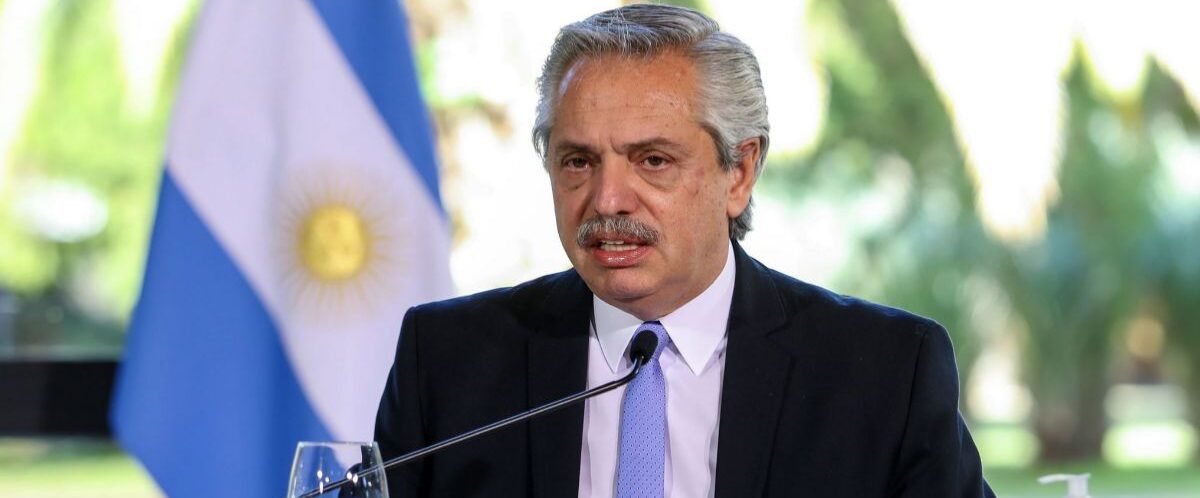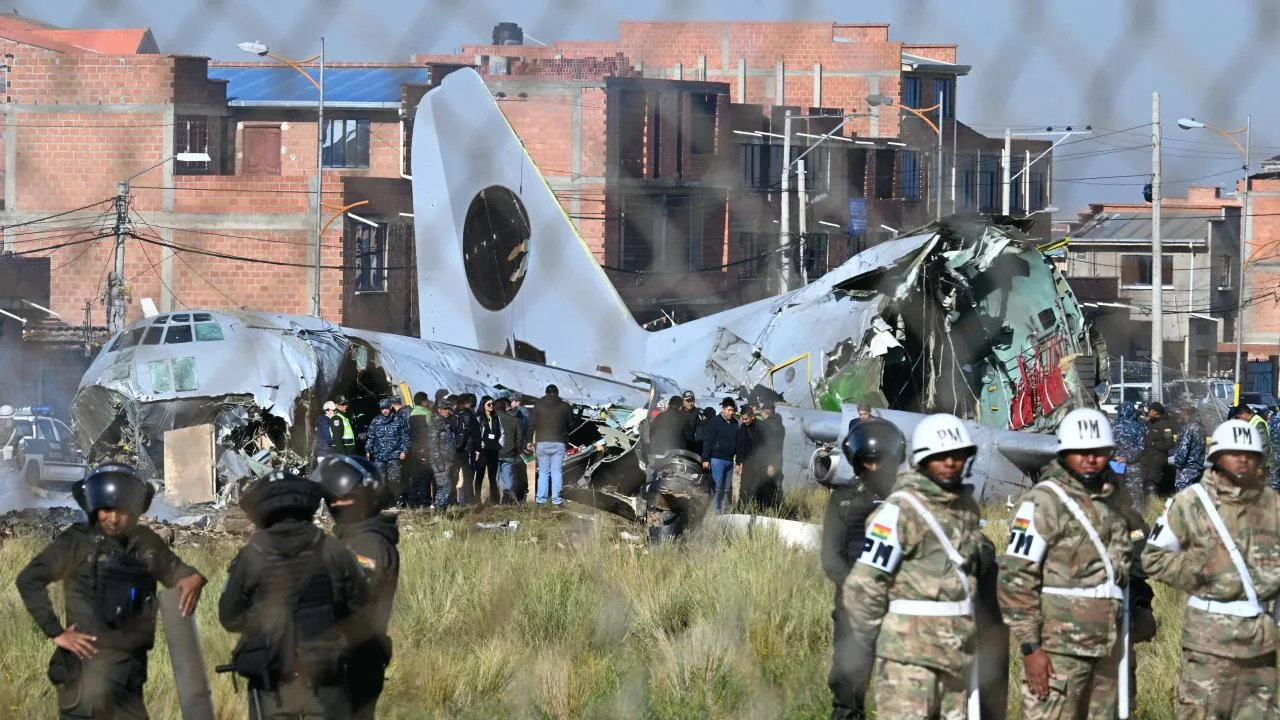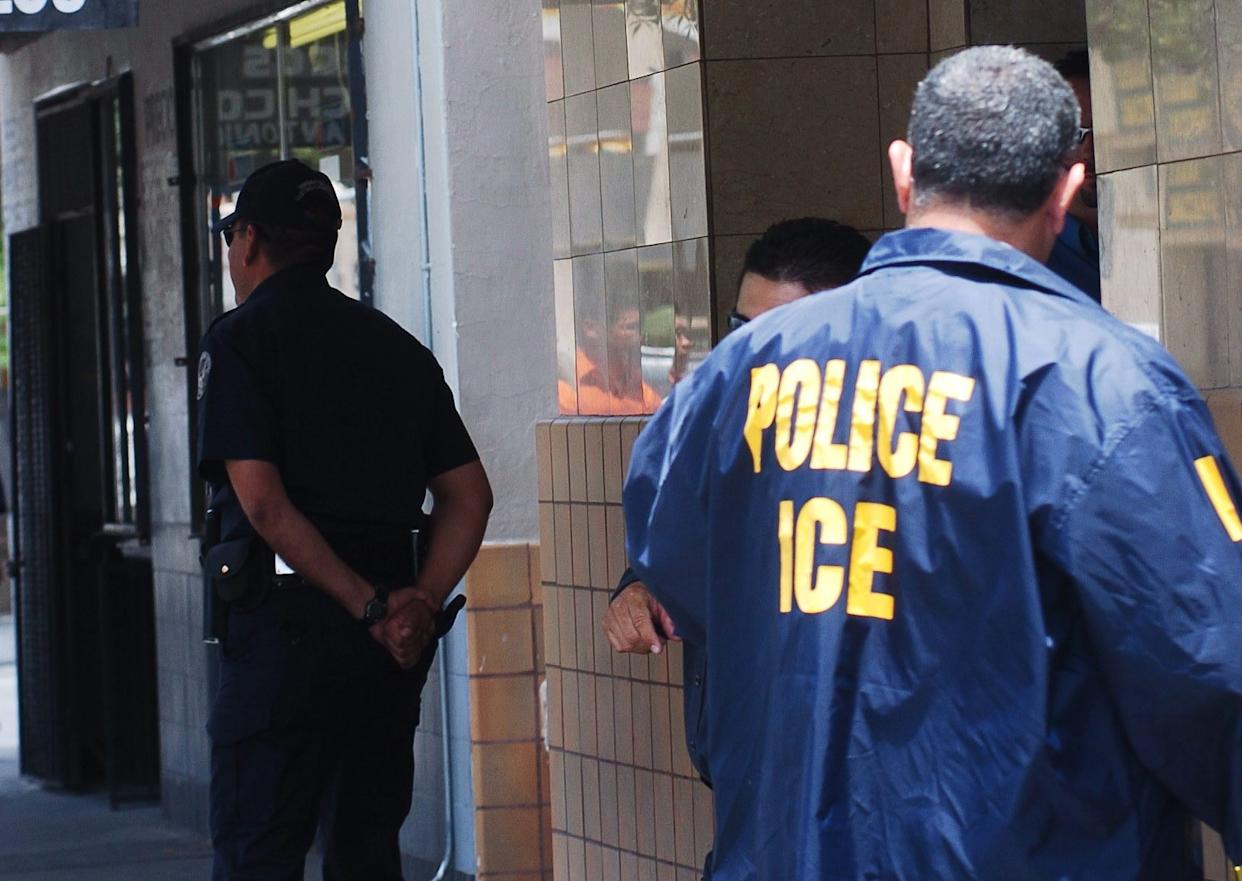International
Argentina govt loses Congress majority, seeks opposition dialogue

AFP
Argentina’s center-left President Alberto Fernandez called for dialogue with the opposition after Sunday’s midterm parliamentary elections, with projections showing his governing coalition has lost control of Congress.
Ahead of the election, there was widespread discontent over the state of the economy, which has been in recession since 2018 and was hit hard by the Covid-19 pandemic.
Having already been in the minority in the Chamber of Deputies — the lower house — Fernandez’s Frente de Todos (Everyone’s Front) coalition looked set to drop from 41 to 35 seats in the 72-member Senate, based on projections with over 90 percent of votes counted.
“If the numbers are confirmed, effectively we’ve lost the quorum in the Senate,” a government source told AFP.
This would be the first time since Argentina’s return to democracy in 1983 that Peronism — a leftist movement based on former president Juan Peron that now covers a broad spectrum of political leanings — would not have a majority in the Senate.
Fernandez will now likely be forced to make concessions to the opposition during the last two years of his mandate in order to pass laws or make key appointments, including to the judiciary.
“We need to prioritize national agreements if we want to resolve the challenges we face,” said Fernandez, adding that he would approach opposition groups to try to find common ground.
“An opposition that is responsible and open to dialogue is a patriotic opposition.”
Nearly half the seats in the Chamber of Deputies were up for grabs, as well as a third of Senate seats, in Sunday’s vote.
Interior Minister Wado de Pedro said turnout in the compulsory election was between 71 and 72 percent.
– ‘Difficulty ahead’ –
Fernandez had been on the defensive since the Frente suffered a bruising defeat in September’s primaries, picking up just 33 percent of the vote compared with 37 percent for the main opposition group Juntos por el Cambio (Together for Change), led by Fernandez’s predecessor Mauricio Macri.
“These next two years are going to be difficult,” Macri said Sunday, while assuring voters that his coalition would “act with great responsibility.”
Fernandez “will have to negotiate law by law,” said Raul Aragon, political scientist at the National University of La Matanza.
He predicted the opposition would be open to talks though.
“It won’t serve them to not engage in dialogue, and appear anti-democratic” before the presidential elections in 2023, Aragon said.
Since the primaries, the government had been in damage limitation mode, announcing last month a deal with the private sector to freeze prices on more than 1,500 basic goods following street protests demanding greater food subsidies.
It has also increased the minimum wage and family allowances.
The government’s supporters have been forced to keep a low profile during the long pandemic lockdowns.
But pro-government trade unions and social organizations recently announced they would march in support of Fernandez on Wednesday, regardless of the election results.
– IMF debt looms –
Argentina’s GDP dropped 9.9 percent last year due to the coronavirus pandemic.
The country has one of the world’s highest inflation rates, at 40 percent so far this year, and a poverty rate of 42 percent for a population of 45 million.
“I fear for the economy,” pastry worker Oscar Navarro told AFP on Sunday, without revealing his vote.
“Salaries are not sufficient. Whoever wins, it will take a long time for the country to recover.”
The government is also in the midst of a tricky renegotiation with the International Monetary Fund over the repayment of a $44 billion debt, originally secured by the Macri government in 2018.
“In this new stage, we will deepen our efforts to secure a sustainable deal with the IMF,” said Fernandez.
He said the country needed to get past the “uncertainties that come with unsustainable debt,” while creating jobs and reducing inflation.
If Fernandez does not manage to reach a new repayment schedule, Argentina will have to repay $19 billion in 2022 and as much again in 2023.
International
Bolivia Orders Three Investigations Into Deadly Military Plane Crash

Bolivia’s Defense Minister Marcelo Salinas announced Monday that three separate investigations will be conducted into Friday’s crash of a military cargo aircraft at El Alto International Airport, near La Paz, which left at least 22 people dead.
The Hercules aircraft, operated by the Fuerza Aérea Boliviana (FAB), was transporting cash intended for the Central Bank of Bolivia when it overshot the runway after landing from the city of Santa Cruz. The plane reportedly traveled nearly one kilometer beyond the airport perimeter.
The incident sparked chaotic scenes, with individuals attempting to collect scattered banknotes. Authorities detained 51 people in the aftermath, and the government declared three days of national mourning.
Multiple Investigations Underway
The first inquiry is being led by a military board from the Bolivian Air Force, which has already taken custody of the aircraft’s black box for analysis.
Minister Salinas said two additional investigations will follow — one conducted by the insurance company and another by the aircraft’s manufacturer.
“At least two more investigations will come, that of the insurance company and that of the aircraft manufacturer,” Salinas said during a press conference in Santa Cruz.
He cautioned that the investigative process could take between three and six months, noting that the black box cannot be opened in Bolivia due to the lack of specialized laboratories for analysis.
Awaiting Official Findings
Salinas stressed that the FAB investigative board is the highest authority in the case and urged the public to wait for its conclusions to avoid speculation about the causes of the crash.
He also confirmed that the government has contacted the families of the 22 victims and the 37 injured, as well as the owners of 15 damaged vehicles, to coordinate procedures with the insurer and cover the corresponding expenses.
International
Mexico Calls for Immediate Probe After National Dies in ICE Custody

Mexico’s Secretaría de Relaciones Exteriores (SRE) on Monday called on U.S. authorities to conduct an “immediate and thorough” investigation into the death of a Mexican national while in custody of U.S. Immigration and Customs Enforcement (ICE) at a processing facility in California.
In a statement, the Mexican government described the death as “regrettable” and urged U.S. officials to clarify the circumstances surrounding the case in order to “determine responsibilities and ensure that such events do not happen again.”
Death at Adelanto Processing Center
According to available information, the Mexican citizen died at the Adelanto Processing Center in California while under ICE custody. Authorities have not yet released the individual’s identity or the cause of death.
Following the incident, Mexico’s Foreign Ministry formally requested “detailed information” from U.S. authorities, including the detainee’s medical records and custody reports.
Consular Assistance Activated
The Mexican Consulate in San Bernardino, California, has activated consular assistance protocols to provide ongoing support to the deceased’s family. Officials have contacted relatives to express condolences and offer legal guidance, as well as assistance with the necessary procedures to repatriate the remains.
“The handling of situations like this and the establishment of mechanisms to resolve them are priorities for the Government of Mexico,” the Foreign Ministry said, adding that it will formally request an investigation into any systemic conditions that may have contributed to such incidents.
Local Mexican media reported that seven Mexican nationals died while in ICE detention last year — the highest number recorded since the agency was created.
International
Anti-ICE Billboard Campaign Targets Immigration Spending in 31 U.S. Cities

More than 200 billboards criticizing U.S. Immigration and Customs Enforcement (ICE) began appearing Monday in 31 cities across the United States, including Miami, as part of a campaign highlighting the high cost of immigration enforcement operations for taxpayers.
The initiative, titled “ICE Costs Us,” was launched by the civil rights organization Mijente and will run for four weeks.
Criticism of Spending and Enforcement Tactics
The billboards feature images of ICE agents during arrests or carrying military-style weapons. According to the organization, spending on military-grade equipment for the agency has increased by 600 percent in recent years.
Several signs display messages such as:
“Your taxes are being wasted” and “ICE’s cruelty costs you $28 billion,” referring to the agency’s annual budget.
In a statement, Marisa Franco, co-founder of the Mijente Support Committee, said:
“For too long, our government has prioritized building cages and investing billions in an immigration enforcement apparatus that has left families torn apart and communities terrified.”
She added that “Millions of Americans are living paycheck to paycheck, yet this violent agency continues operating with a blank check. These decisions do not make us safer nor improve our economic security. Our billboards highlight these choices and demand a different path.”
Budget Debate and Medicaid Comparison
The campaign also draws a comparison between ICE’s funding and the estimated 17 million people who could lose health coverage under Medicaid due to federal budget cuts under President Donald Trump.
Other billboard messages seen in various cities include:
“They get billions to beat us; we get layoffs and rising rents” and “Funding ICE is a fast track to fascism.”
Organizers say the goal is to spark public debate about the allocation of federal funds for immigration enforcement and the broader economic and social impact of such policies on communities nationwide.
-

 International2 days ago
International2 days agoIran Reports 201 Dead, 747 Injured After U.S. and Israeli Strikes
-

 International5 days ago
International5 days agoCocaine Production Surges 34% in 2023 as Market Expands into Africa and Asia
-

 International4 days ago
International4 days agoTrump Floats “Friendly Takeover” of Cuba Amid Rising Tensions
-

 Sin categoría3 days ago
Sin categoría3 days agoTrump: ‘We Think It’s True’ Amid Claims Iran’s Supreme Leader Was Killed
-

 International3 days ago
International3 days agoSecurity Council to Hold Emergency Meeting on Middle East Crisis
-

 International2 days ago
International2 days agoPope Leo XIV Urges End to ‘Spiral of Violence’ in Middle East
-

 International5 days ago
International5 days agoFederal Judge Blocks Trump Policy Allowing Deportations to Third Countries
-

 International4 days ago
International4 days agoArgentina’s Senate Reviews Milei-Backed Labor Overhaul
-

 International17 hours ago
International17 hours agoBrazil’s Supreme Court Rejects Bolsonaro’s Bid for House Arrest
-

 International5 days ago
International5 days agoClinton Accuses Republican Committee of Using Epstein Case to Shield Trump
-

 International17 hours ago
International17 hours agoAnti-ICE Billboard Campaign Targets Immigration Spending in 31 U.S. Cities
-

 International17 hours ago
International17 hours agoTrump Warns of ‘Major Wave’ of Attacks as Iran Conflict Escalates
-

 International17 hours ago
International17 hours agoMexico Calls for Immediate Probe After National Dies in ICE Custody
-

 Central America17 hours ago
Central America17 hours agoPanama Canal Monitoring Trade as Middle East Conflict Disrupts Shipping
-

 International17 hours ago
International17 hours agoBolivia Orders Three Investigations Into Deadly Military Plane Crash




























